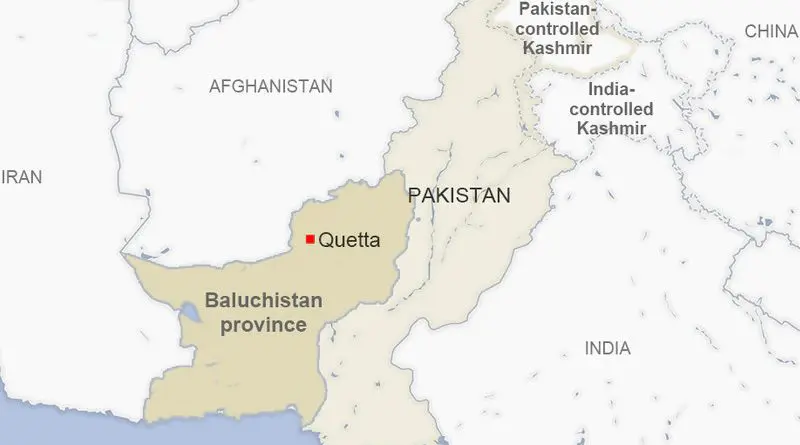The Struggle For Peace In Balochistan – OpEd
Ever since the inception of the China-Pakistan Economic Corridor (CPEC) project, the eyes of Pakistan have been firmly fixed on Balochistan. The vision of a developed and verdant Balochistan is seen as a cornerstone for Pakistan’s bright future. Prioritizing the alleviation of the deprivations faced by the people of Balochistan, tackling pervasive poverty, and ensuring widespread access to education and basic life conveniences are critical steps toward this vision. Additionally, transforming Gwadar into a modern, thriving port city is essential for the nation’s development. However, the key to achieving these goals lies in establishing lasting peace in the region.
The Pakistan armed forces have been striving tirelessly to establish peace in Balochistan. Yet, persistent foreign intervention remains a significant hurdle, primarily due to the lack of a robust administrative force. The police presence is limited to urban areas, leaving vast rural expanses unguarded. Balochistan covers approximately 350,000 square kilometers, about forty percent of Pakistan’s total area, but it lacks an effective police force. The local force, known as the Levies, is inadequately equipped and poorly performing. The military, despite having numerous check posts and around 40,000 to 50,000 soldiers stationed there, cannot adequately cover such an expansive area. The response time is often delayed, allowing terrorists to escape after their attacks.
To effectively combat terrorism, it is imperative to establish a comprehensive police infrastructure in Balochistan immediately. Enhancing the capacity and capability of the Levies force is crucial. Three elements are essential for preventing terrorist incidents: a network of intelligence forces capable of providing advance information about terrorist movements, a robust force presence in the vicinity to retaliate in case of surprise attacks, and immediate response capabilities.
In Balochistan, these three critical elements are missing. Most terrorist incidents occur without prior warning, and if any warnings are issued, they are often non-specific. Forces are rarely in a defensive position in advance, and in rural areas, the response time is significantly delayed, rendering them ineffective in preventing or mitigating attacks.
The acts of terrorism in Balochistan are heinous and cannot be classified as ordinary crimes. Terrorists target innocent and defenseless people, often committing barbaric acts such as beheadings and playing football with the severed heads. Such acts reflect a complete loss of humanity and an embrace of bestiality. This cruelty defies any logical or religious justification, highlighting the sheer madness and savagery of the terrorists. These terrorists have formed organizations, making regular demands and engaging in systematic atrocities.
Combating these terror monsters requires a united national effort. The government and Pakistan forces must focus on eradicating this menace. The government’s first task should be to activate the police system in Balochistan instead of spending billions on luxuries. Establishing police stations and checkpoints across the province, based on area rather than population, is essential. An allocation of at least 1,200 billion rupees is necessary for the Balochistan Police to undertake this task effectively.
Additionally, the Levies force needs rigorous training and restructuring, including discharging incompetent personnel and recruiting new, capable individuals. The establishment of networks involving the Intelligence Bureau (IB), the Federal Investigation Agency (FIA), and other law enforcement agencies is crucial. Practical measures, rather than mere wishes, are required to address the situation.
The budgetary allocation for Balochistan, which covers forty percent of Pakistan’s area, is significantly lower compared to other provinces. This year, Balochistan’s budget was presented at nine and a half billion rupees, whereas Sindh’s budget exceeds three thousand billion rupees, and Khyber Pakhtunkhwa’s budget is around seventeen hundred billion rupees. Increasing Balochistan’s budget to three or four hundred billion rupees could facilitate the development of essential infrastructure.
Solving the terrorism problem in Balochistan demands national unity and a concerted effort. Without practical steps and adequate resources, the terrorists will continue their atrocities. A united front is essential to ensure a peaceful, prosperous, and developed Balochistan, ultimately securing a bright future for Pakistan.
Eventually, the fight against terrorism in Balochistan is not just a regional issue but a national imperative. The CPEC project has highlighted the strategic importance of Balochistan, but true progress can only be achieved through peace. The government’s immediate priority should be to establish a strong police presence, enhance the Levies force, and develop robust intelligence networks. Moreover, budgetary allocations must reflect the critical need for infrastructure and security enhancements in Balochistan. By uniting as a nation and addressing these issues head-on, we can transform Balochistan into a beacon of development and stability, ensuring a brighter future for all of Pakistan.

